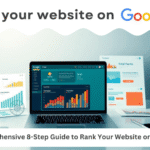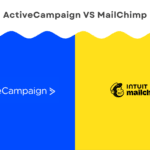Ahrefs vs Semrush vs Moz: In the competitive landscape of digital marketing, SEO tools are paramount for businesses aiming to enhance their online presence. SEO tools are essential resources for website owners, marketers, and content creators, enabling them to improve their site’s visibility on search engines. Platforms such as Ahrefs, SEMrush, and Moz have emerged as prominent players in this arena, offering a range of functionalities tailored to optimize content and elevate search rankings.
Table of Contents
Introduction to SEO Tools
Ahrefs is a comprehensive SEO tool known for its powerful backlink analysis capabilities. It allows users to gain insights into their own link profiles as well as those of competitors. This information is vital for developing effective link-building strategies, significantly influencing a site’s authority and ranking in search engines. Additionally, Ahrefs facilitates keyword research, providing users with data on search volume and keyword difficulty, essential for content optimization.
SEMrush, another leading tool, is recognized for its all-in-one marketing solution that encompasses SEO and PPC efforts. The platform provides advanced analytics that can track not only rankings but also overall domain performance. Its competitive analysis features are particularly noteworthy, allowing users to uncover strategies employed by rivals and adjust their tactics accordingly. Moreover, SEMrush assists in identifying high-potential keywords, making it a valuable asset for content planning.
Moz, while perhaps less extensive than Ahrefs and SEMrush, holds a significant place in the SEO tool ecosystem. It focuses primarily on improving search rankings through its unique metrics like Domain Authority, which helps users understand a website’s credibility. Moz also offers robust keyword research tools and a user-friendly interface, catering to both beginners and seasoned professionals. Each of these tools plays a crucial role in shaping an effective SEO strategy, making a detailed comparison essential for determining which tool reigns supreme in the SEO landscape.
Overview of Ahrefs
Ahrefs is widely recognized as one of the leading SEO tools in the market, known for its comprehensive features that cater to the diverse needs of digital marketers and SEO professionals. One of its most notable functionalities is site auditing. Ahrefs’ site audit tool allows users to conduct a thorough analysis of their websites, identifying technical SEO issues, broken links, and other areas that may hinder performance. This capability is crucial for maintaining an effective online presence, as it helps to pinpoint specific problems that could affect search engine rankings.
Another significant feature of Ahrefs is its backlink analysis. Backlinks are essential for SEO, as they indicate the authority and credibility of a website. Ahrefs boasts an extensive backlink index that provides users with insights into their link profile, revealing both the quantity and quality of backlinks. This comprehensive data enables users to understand their backlink opportunities better, monitor competitors, and inform their link-building strategies effectively.
Keyword research is another area where Ahrefs excels. With its powerful keyword explorer tool, users can identify high-potential keywords relevant to their niche, complete with search volume data, difficulty scoring, and even click-through rate estimates. This feature empowers users to create and optimize content strategically, ensuring it resonates with their target audience.
Competitor analysis is vital for staying ahead in the competitive SEO landscape, and Ahrefs offers robust tools to facilitate this process. Users can easily analyze competitors’ rankings, backlink profiles, and organic search performance. This data provides valuable insights into effective strategies that can enhance a user’s own SEO efforts.
Ultimately, the strengths of Ahrefs lie in its accuracy, user-friendly interface, and extensive data collection. Given these features, it is no surprise that many SEO professionals favor Ahrefs when conducting site evaluations and developing optimization tactics, solidifying its position in the ongoing discussion of ahrefs vs SEMrush vs Moz.
Read more about Ahrefs Review
Overview of SEMrush
SEMrush stands as a comprehensive digital marketing tool that integrates an extensive suite of features tailored to accommodate the diverse needs of marketers. Renowned primarily for its profound capabilities in SEO, SEMrush transcends traditional functionality by also addressing areas such as content marketing, PPC, and social media management. This versatility makes it a favored choice among professionals aiming to enhance their online presence.
A significant attribute of SEMrush is its advanced keyword research tool, which empowers users to discover high-potential keywords and phrases crucial for optimizing website visibility. Users can analyze search volume, keyword variations, and difficulty scores, all of which provide valuable insights for developing content strategies. By focusing on these elements, SEMrush aids in crafting targeted approaches that resonate with the desired audience.
In addition to keyword research, SEMrush offers robust site audit capabilities. The site audit tool meticulously examines a website, identifying critical issues that may hinder search engine optimization efforts. By generating actionable insights, users can enhance their site’s health, ensuring that they adhere to best practices and ultimately improve their rankings in search results.
Traffic analysis is another cornerstone of the SEMrush platform. It enables users to track their website’s performance over time, as well as benchmark against competitors. With visualized data and reports, marketers can gain a clearer perspective on traffic sources, user behavior, and conversion metrics. This functionality is essential in devising strategies that effectively target both organic and paid search channels.
SEMrush’s social media management tools further complement its offerings by allowing marketers to schedule posts, track engagement, and analyze the performance of various campaigns across platforms. This holistic approach ensures that users can manage their online marketing efforts seamlessly, thereby optimizing overall strategy beyond just the SEO-focused capabilities. Thus, SEMrush’s multifaceted toolset positions it as a formidable player in the ongoing discussion of ahrefs vs SEMrush vs Moz.
Read more about Ahrefs SEMrush Review
Overview of Moz
Moz is a well-established player in the field of search engine optimization (SEO), offering a suite of tools tailored to meet the needs of both novice and seasoned marketers. Known for its user-friendly interface, Moz caters to a broad audience seeking to enhance their online visibility. One of its standout features is the keyword tracking functionality, which allows users to monitor rankings and track keywords effectively. This enables businesses to understand their positioning in search results and refine their content strategies accordingly.
Another significant tool provided by Moz is the site audit feature. This function systematically evaluates websites for various SEO factors, including page structure, indexing issues, and user experience. By conducting thorough site audits, users can identify areas needing improvement, thus optimizing their website for better performance in search engines. The insights gained from these audits are crucial for developing a focused SEO strategy that yields measurable results.
A prominent metric from Moz is the Domain Authority (DA), a score ranging from one to 100 that predicts how well a website will rank on search engine results pages. This metric is particularly valuable as it provides a comparative analysis of website strength relative to competitors. Businesses can leverage the DA metric to assess their SEO progress over time and gauge the effectiveness of their optimization efforts.
In essence, Moz emerges as a robust SEO tool offering a variety of features that support comprehensive optimization goals. From keyword tracking and site audits to its distinctive Domain Authority metric, Moz equips users with the necessary tools to navigate the complexities of SEO. Whether for businesses seeking to improve their visibility or beginners exploring the world of online marketing, Moz stands out as a valuable resource in the competitive landscape of SEO tools, especially when contrasted with other options like Ahrefs and SEMrush.
Read more about Moz Review
Comparison of Key Features Ahrefs vs SEMrush vs Moz
When evaluating the SEO tools Ahrefs, SEMrush, and Moz, it is essential to consider several key features that differentiate them from one another. Each tool offers unique capabilities designed to cater to various needs in the SEO landscape, making a direct comparison valuable for potential users.
Starting with keyword research capabilities, all three platforms provide extensive databases to identify valuable keyword opportunities. Ahrefs is particularly recognized for its vast keyword index and user-friendly interface, supporting users in discovering both long-tail and short-tail keywords. In contrast, SEMrush shines with its Keyword Magic Tool, which generates thousands of ideas based on user inputs. Meanwhile, Moz offers the Keyword Explorer, which, although not as broad, provides useful metrics such as keyword difficulty and organic CTR, helping to make informed decisions.
When it comes to backlink analysis, Ahrefs stands out with the most comprehensive link database, allowing users to analyze competitors’ backlink profiles thoroughly. SEMrush also offers robust backlink tools, including a Backlink Audit feature, which aids users in monitoring their link health over time. Moz’s Link Explorer is user-friendly, providing essential metrics but lacks the extensive database of its competitors.
The user interface is another critical aspect to consider. Ahrefs features a clean and intuitive dashboard that simplifies navigation, making it easier for both beginners and experts to access various functionalities. SEMrush offers a detailed interface packed with information, which may appear overwhelming initially but provides depth for users who seek it. Moz’s interface is user-friendly, particularly beneficial for beginners, ensuring a smooth user experience.
In terms of reporting options, all three tools present customizable reporting features. Ahrefs enables users to create straightforward reports, while SEMrush offers in-depth, template-style reports tailored to specific needs. Moz facilitates easy sharing and collaboration through its reporting tools, making it appealing for teams. Lastly, pricing is a significant factor in tool selection. Each of these tools has a distinct pricing structure, with Ahrefs generally being higher in cost, SEMrush providing more versatile plans, and Moz offering competitive pricing aimed at small businesses.
Pros and Cons of Each Tool
Analyzing the strengths and weaknesses of Ahrefs, SEMrush, and Moz provides valuable insights for users looking to select the best SEO tool for their needs. Each platform has its distinct advantages that cater to varying SEO strategies and user preferences.
Ahrefs is renowned for its robust backlink analysis capabilities and its extensive database. Users often laud its intuitive interface, which simplifies navigation and data interpretation. The tool offers comprehensive site audits and keyword research functionalities, making it ideal for users focused on improving their link-building efforts. However, its pricing may be a consideration; Ahrefs tends to be on the higher end, which can be a drawback for smaller businesses or freelancers. Furthermore, while Ahrefs excels in certain areas, it is less focused on PPC-related features compared to its counterparts.
SEMrush stands out for its versatile features that encompass SEO, PPC, and content marketing, which makes it particularly useful for digital marketers looking for an all-in-one solution. Its competitive analysis tools are especially beneficial for businesses looking to glean insights from their rivals. However, some users find the learning curve steep due to the vast array of features, and certain functionalities may feel overwhelming. Additionally, while SEMrush’s pricing structure is flexible, advanced features can quickly increase costs.
Moz is often praised for its user-friendly interface and excellent community support. The tool’s emphasis on page optimization with suggestions for improvements can be particularly beneficial for beginners. Despite its advantages, Moz’s backlink analysis is not as comprehensive as Ahrefs, potentially limiting its usefulness for users who prioritize link-building data. Furthermore, compared to SEMrush, its range of features may feel limited to those seeking a more holistic approach to SEO.
In conclusion, understanding the pros and cons of Ahrefs, SEMrush, and Moz helps users make informed decisions tailored to their specific SEO needs and budgets. Each tool’s unique capabilities highlight the importance of aligning one’s strategies with the right platform.
User Experience and Support
When it comes to choosing between Ahrefs, SEMrush, and Moz, user experience and support play crucial roles in ensuring that users can effectively navigate these SEO tools. Each platform offers a different approach to usability, tailored to accommodate various levels of SEO expertise.
Ahrefs is widely recognized for its intuitive interface. Users often appreciate the clean layout and straightforward navigation that allow even newcomers to familiarize themselves without much effort. Reviewers highlight the availability of an extensive range of tutorials and guides, which help users maximize the tool’s full potential. Additionally, Ahrefs offers customer support via email, which, while not immediate, is generally regarded as responsive and helpful.
SEMrush, on the other hand, provides a comprehensive dashboard that is rich in features. While some advanced users may find this complexity advantageous, beginners might feel overwhelmed. The tool does, however, compensate for this through the availability of robust online knowledge bases and community forums. The customer support at SEMrush is notable for its live chat options, ensuring quick access to assistance, though response times may vary based on demand.
Moz offers a balance between versatility and accessibility, catering to a wider audience. Its interface is designed to be user-friendly, particularly for those who are just venturing into the world of SEO. Moz provides extensive learning resources through its blog and webinars, making it easier for users to improve their skills while using the tool. Customer support at Moz is available through a ticketing system, and many users report satisfactory experiences with timely responses.
Ultimately, the choice between Ahrefs, SEMrush, and Moz depends on the individual user’s needs and preferences, as each platform provides unique strengths in user experience and support. Positive reviews from users show that the right support and ease of use can significantly enhance the effectiveness of these SEO tools in achieving success.
Pricing Plans Compared
When evaluating the pricing plans of Ahrefs, SEMrush, and Moz, it is essential to consider how each platform structures its offerings to cater to various business sizes and needs. Each tool provides a range of subscription levels, each tailored to different aspects of SEO and digital marketing, thus influencing their value propositions significantly.
Ahrefs operates on a straightforward pricing model that includes four primary tiers: Lite, Standard, Advanced, and Agency. The Lite plan starts at an affordable price, making it accessible for freelancers and small businesses. However, it limits certain features, such as the number of simultaneous reports. As one progresses to the Standard and Advanced plans, access to more robust features, including more extensive data on backlinks and organic search traffic, is unlocked. The Agency plan, as expected, caters to larger firms requiring advanced capabilities and increased limits on user accounts.
On the other hand, SEMrush offers a broader range of subscription options, including Pro, Guru, and Business plans. The Pro plan is ideal for startups, providing ample features tailored for newcomers to SEO. However, to tap into more advanced tools, such as content marketing and social media management features, users may need to upgrade to the Guru or Business plans, which can be more costly. SEMrush allows built-in tools that are particularly valuable for agencies, emphasizing the all-in-one solution for comprehensive SEO, PPC, and content strategies.
Moz, contrasting with both Ahrefs and SEMrush, offers a simpler pricing structure featuring Moz Pro. The plans vary based on the number of features rather than tiers explicitly aimed at different business sizes. Moz Pro tends to be cost-effective for small to medium enterprises, particularly those focused on local SEO, thanks to its user-friendly interface and accessibility to essential features at a reasonable price.
In analyzing these platforms, it becomes evident that Ahrefs vs SEMrush vs Moz each has its unique strengths in pricing, making them suitable for different business strategies and sizes. Small businesses might find Ahrefs or Moz more aligned with their budget, while SEMrush might cater better to larger firms requiring comprehensive tools.
Pros and Cons of Each Tool
Analyzing the strengths and weaknesses of Ahrefs, SEMrush, and Moz provides valuable insights for users looking to select the best SEO tool for their needs. Each platform has distinct advantages that cater to varying SEO strategies and user preferences.
Ahrefs
Pros:
- Comprehensive Backlink Analysis: Ahrefs is widely praised for its vast and detailed backlink index, making it ideal for link-building strategies and competitor analysis.
- Keyword Research: The tool’s keyword explorer provides extensive keyword data, including search volume, keyword difficulty, and click-through rate (CTR) estimates.
- Site Audits: Ahrefs’ site audit tool is powerful, helping users identify technical SEO issues, broken links, and performance barriers.
- User-Friendly Interface: Despite its powerful features, Ahrefs maintains an easy-to-navigate interface that suits both beginners and experts.
Cons:
- Higher Pricing: Ahrefs can be expensive, especially for small businesses or freelancers on a budget.
- Limited PPC Features: Compared to SEMrush, Ahrefs has fewer PPC-related functionalities, making it less versatile for marketers focused on paid search campaigns.
- No Built-in Social Media Tools: Unlike SEMrush, Ahrefs doesn’t provide social media management features.
SEMrush
Pros:
- All-in-One Marketing Solution: SEMrush excels in integrating SEO with PPC, content marketing, and social media management, making it a great choice for digital marketers managing multiple campaigns.
- Competitive Analysis: Its tools for analyzing competitors’ strategies are highly detailed, helping businesses stay ahead in the SEO game.
- Comprehensive Keyword Research: SEMrush’s Keyword Magic Tool is one of the most powerful in the industry, generating thousands of keyword suggestions based on a single seed keyword.
- Traffic Analysis and Reporting: SEMrush allows users to track organic and paid traffic, with visualized data and customized reporting options.
Cons:
- Steep Learning Curve: Due to its range of features, new users may feel overwhelmed by SEMrush’s interface and functionalities.
- Higher Costs for Advanced Features: While SEMrush’s entry-level plans are affordable, more advanced features can come at a steep price.
- Overwhelming for Beginners: The vast array of features might be overwhelming for users who are new to SEO or digital marketing.
Moz
Pros:
- User-Friendly Interface: Moz is known for its intuitive design, making it an excellent choice for beginners and those new to SEO.
- Local SEO Capabilities: Moz offers strong local SEO features, making it ideal for small businesses or those with a localized audience.
- Domain Authority Metric: Moz’s Domain Authority (DA) score is a unique and useful tool for evaluating website credibility and rank potential.
- Community Support and Learning Resources: Moz has an active user community and a wealth of learning resources, including blogs, webinars, and guides.
Cons:
- Limited Backlink Data: Compared to Ahrefs, Moz’s backlink database is not as extensive, limiting its utility for link-building efforts.
- Fewer Advanced Features: Moz does not provide the same depth of features as SEMrush and Ahrefs, making it less suitable for those seeking an all-in-one digital marketing tool.
- Pricing for Small Businesses: While Moz is more affordable than SEMrush and Ahrefs, its premium plans may still be a consideration for small or new businesses on a tight budget.
When comparing Ahrefs vs SEMrush vs Moz, each SEO tool brings unique strengths to the table, catering to different needs in the digital marketing landscape. Ahrefs stands out for its powerful backlink analysis and comprehensive keyword research features, making it a top choice for link-building and SEO professionals. SEMrush, on the other hand, shines as an all-in-one digital marketing solution with robust features for SEO, PPC, content marketing, and social media management, making it ideal for marketers managing diverse campaigns. Moz is praised for its user-friendly interface and strong local SEO tools, making it a great option for beginners and small businesses focused on improving their local search presence.
- Ahrefs excels in backlink analysis and keyword research, but it comes at a higher price point and lacks PPC and social media tools.
- SEMrush offers a comprehensive set of tools for both SEO and PPC, with a focus on competitive analysis and detailed traffic reports. However, its complexity can overwhelm new users, and advanced features can be costly.
- Moz provides an intuitive interface and strong local SEO capabilities, but its backlink database is not as extensive as Ahrefs, and it lacks the advanced features of SEMrush.
Ultimately, the best choice between Ahrefs, SEMrush, and Moz depends on your specific SEO needs, budget, and business goals.
Case Studies and User Testimonials
To better understand the effectiveness of SEO tools, examining real-world case studies and user testimonials offers valuable insights. Each tool—Ahrefs, SEMrush, and Moz—has its own strengths, and businesses from various sectors have leveraged these tools to enhance their SEO performance.
For instance, a prominent e-commerce website utilized Ahrefs’ comprehensive backlink analysis features to identify high-authority sites for linking opportunities. By conducting thorough competitor analysis and tracking keyword rankings with Ahrefs, the company succeeded in increasing its organic traffic by over 40% within a six-month period. The seamless user interface and detailed reporting capabilities were highlighted as significant contributors to this achievement.
Similarly, a digital marketing agency reported a highly positive experience with SEMrush. They employed its all-in-one marketing toolkit to optimize their clients’ websites and manage PPC campaigns effectively. The agency noted that the ability to perform site audits and track keyword rankings allowed them to identify optimization opportunities quickly. As a result, they achieved an impressive 30% growth in organic search traffic for their clients within a year, emphasizing SEMrush’s versatility in handling diverse marketing strategies.
On the other hand, users of Moz frequently share commendable experiences regarding its local SEO capabilities. A small business focusing on local services leveraged Moz’s tools to improve their visibility in local search results. By utilizing the Moz Local feature, they managed to enhance their online presence significantly, resulting in a 50% increase in local search inquiries in just a few months.
These case studies highlight the unique advantages of each tool in the debate of Ahrefs vs SEMrush vs Moz, showing how each platform caters to specific needs while delivering significant results. Testimonials reflect a range of successes that can guide potential users in making informed decisions regarding which tool aligns best with their specific SEO requirements.
Conclusion: Choosing the Right SEO Tool (Ahrefs vs SEMrush vs Moz)
When evaluating the best SEO tools for your specific needs, it is essential to consider the unique features and strengths of Ahrefs, SEMrush, and Moz. Each of these platforms offers a range of capabilities that cater to varying user requirements, from keyword research and backlink analysis to site audits and competitive analysis. Thus, understanding what each tool brings to the table can greatly influence your choice in the ongoing discussion of Ahrefs vs SEMrush vs Moz.
Ahrefs is well-known for its robust backlink analysis, making it an excellent choice for users primarily focused on link building and competitive research. Its extensive database allows for comprehensive insights into the link profiles of competitors, providing an edge in linking strategies. On the other hand, SEMrush stands out with its all-in-one approach, integrating functionality for PPC campaigns along with SEO, which can be particularly advantageous for marketers engaged in both disciplines simultaneously. Its user-friendly interface also makes it popular among novices and experienced users alike.
Moz, recognized for its community and educational resources, is an ideal candidate for users seeking to improve their SEO knowledge while utilizing a powerful tool. Its intuitive dashboard and unique metrics, such as Domain Authority, can help users gauge their website’s performance effectively.
Ultimately, the choice among Ahrefs, SEMrush, and Moz boils down to personal or organizational priorities. Users are encouraged to analyze their specific requirements and objectives before making a decision. Each of these tools typically offers free trials, allowing potential users to explore the features firsthand. By assessing individual needs and comparing the tools through the lens of Ahrefs vs SEMrush vs Moz, you can make an informed choice that aligns with your SEO goals.
Frequently Asked Questions (FAQs)
1. What is the best SEO tool: Ahrefs vs SEMrush vs Moz?
The best SEO tool for you depends on your specific needs. Ahrefs is ideal for backlink analysis and in-depth keyword research. SEMrush excels as an all-in-one platform for SEO, PPC, content marketing, and social media management. Moz is a great choice for beginners and small businesses, with a focus on user-friendliness and local SEO features. Consider your budget, required features, and overall digital marketing goals when deciding.
2. Which tool offers the best backlink analysis: Ahrefs, SEMrush, or Moz?
If backlink analysis is your primary focus, Ahrefs is widely considered the best tool. It boasts the largest and most comprehensive backlink database, providing deep insights into competitor link profiles and backlink opportunities. SEMrush also offers robust backlink analysis, but Ahrefs is generally regarded as the superior option in this category. Moz, while useful for backlink tracking, doesn’t have the same depth as Ahrefs or SEMrush.
3. Is SEMrush more suitable for beginners than Ahrefs or Moz?
SEMrush can be somewhat overwhelming for beginners due to its extensive feature set, but its user-friendly interface and detailed tutorials make it accessible. Moz is often considered more beginner-friendly, offering a simpler, more intuitive experience. Ahrefs also provides a relatively easy-to-use interface, but its focus on advanced SEO features might be more suited to professionals or those with experience.
4. Can I use Moz for local SEO optimization?
Yes, Moz is particularly strong in local SEO. Its Moz Local feature helps businesses manage their local listings and improve visibility in local search results. While Ahrefs and SEMrush have local SEO capabilities, Moz is often the go-to choice for those focused on local search optimization.
5. Does SEMrush include social media management features?
Yes, SEMrush offers tools for social media management, including scheduling posts, tracking engagement, and analyzing campaign performance. This makes it a comprehensive platform for users managing both SEO and social media campaigns. Neither Ahrefs nor Moz provides these features, focusing more on SEO and content marketing.
6. How do Ahrefs, SEMrush, and Moz compare in pricing?
Ahrefs vs SEMrush vs Moz each has its own pricing structure, catering to different types of users. Ahrefs is generally on the higher end in terms of pricing, especially for advanced features. SEMrush offers multiple plans, with more affordable entry-level options, but costs can add up with advanced features. Moz tends to be more cost-effective for small businesses, with a straightforward pricing model that is easier to understand for beginners.
7. Which tool is best for keyword research: Ahrefs, SEMrush, or Moz?
All three tools—Ahrefs, SEMrush, and Moz—offer strong keyword research capabilities. Ahrefs has a vast keyword index and a highly rated keyword explorer tool. SEMrush provides a more expansive keyword database and its Keyword Magic Tool is highly versatile. Moz offers the Keyword Explorer tool, which is not as extensive but still delivers valuable metrics like keyword difficulty and organic CTR. If keyword research is a priority, SEMrush and Ahrefs are generally the top choices.
8. Can I integrate Ahrefs, SEMrush, or Moz with other tools?
Yes, each of these tools allows for integration with other platforms. SEMrush offers integrations with Google Analytics, Google Search Console, and various social media platforms. Ahrefs does not offer as many direct integrations but can work with third-party tools for backlink analysis. Moz integrates well with Google Analytics and other SEO-related tools, though it may not have as many integrations as SEMrush.
9. Which SEO tool is best for competitive analysis: Ahrefs, SEMrush, or Moz?
For competitive analysis, SEMrush is the most comprehensive tool. It provides detailed insights into competitors’ SEO and PPC strategies, traffic sources, and keywords. Ahrefs is also strong in competitor analysis, particularly for backlinks, while Moz offers more basic competitive insights. If understanding your competitors’ strategies is critical, SEMrush should be your first choice.
10. Is Moz suitable for advanced SEO professionals, or is it more for beginners?
While Moz is known for its beginner-friendly interface, it still offers features that advanced SEO professionals can use, such as Domain Authority and Page Optimization tools. However, for more complex or technical SEO tasks, Ahrefs or SEMrush may be better suited for professionals due to their more comprehensive capabilities.









